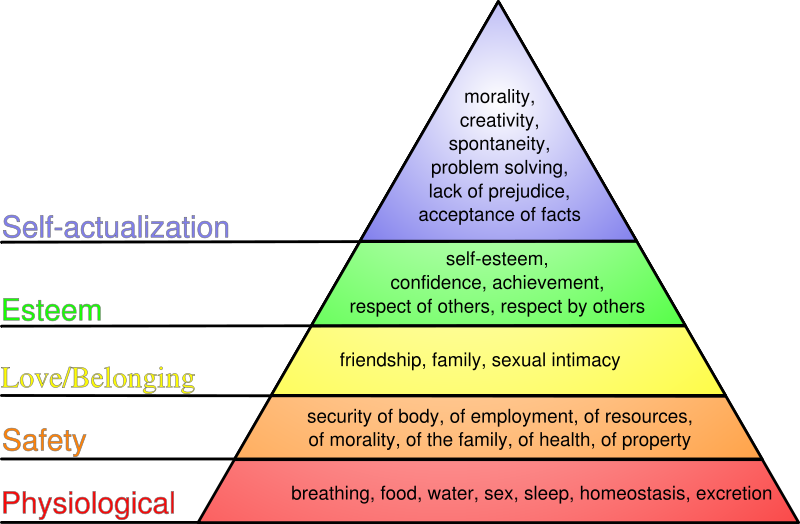For those who don't know what that is, let me quote wiki:
"In its classical form, the prisoner's dilemma ("PD") is presented as follows:It goes on to say that we must:
Two suspects are arrested by the police. The police have insufficient evidence for a conviction, and, having separated both prisoners, visit each of them to offer the same deal. If one testifies (defects from the other) for the prosecution against the other and the other remains silent (cooperates with the other), the betrayer goes free and the silent accomplice receives the full 10-year sentence. If both remain silent, both prisoners are sentenced to only six months in jail for a minor charge. If each betrays the other, each receives a five-year sentence. Each prisoner must choose to betray the other or to remain silent. Each one is assured that the other would not know about the betrayal before the end of the investigation.How should the prisoners act?"
"...assume that each player cares only about minimizing his or her own time in jail"But why should we??
That's an arbitrary assumption to make based on a researcher or thought-experimenter's own values. There are many situations which are easy to imagine where other values would be clearly dominant.
For example, in the real world being a "snitch" or being thought of as one carries extreme consequences to some criminals. Some people also turn to crime because their alternatives are severely limited by their skills, education, social ability, personal history, intelligence or geography - and thus in some situations jail would offer an improvement to the perceived standard of living of some individuals. Point is, there are thousands of such scenarios where the choice that game theorists define as the "optimal" solution wouldn't be the real one chosen by actual human beings.
As a result we get study after study claiming that people behave irrationally even though in reality their choices are directed by value-seeking behavior that just doesn't conform to the predicted value structure of the researchers.
However... Real life is always the baseline of what we should define as correct and theories which don't accurately describe real life need to be understood as false, or at least partly false.
Now you might think that this may be an example of question begging or circular logic since based on my above statements it would seem like I'm suggesting that irrational behavior is impossible. As a matter of fact I do believe that irrational behavior is certainly possible but it should be defined as actions which go against a person's value-oriented goals. In the above scenario, if a prisoner knew he was going to be murdered or injured for being a "snitch", and he did not want to be murdered, then he'd be irrational if he picked the option that led to that outcome. Irrational behavior is possible... But the Prisoner's Dilemma actually really doesn't prove that point at all - and neither do most other game theory hypotheticals.
The trouble - from the standpoint of sociological research methodology - is that we can't actually know what the prisoner's values are. We can make guesses and estimates, and we can even ask him (though it's dubious that he would tell any particularly intimate beliefs or feelings truthfully to researchers he doesn't even know), but ultimately human beings aren't blessed with the ability to read minds and as a result we are all in the dark about what others of our species are really after.
As a general rule, Abraham Maslow's hierarchy of needs is a good starting block:
But even the base is imperfect (some people wish to commit suicide, for instance), and once you make it into the emotional territories of Love & Belonging, Esteem and Self-actualization all bets are basically off as to what that means to different people. You don't know what makes me happy and feel loved any more than I would be so presumptuous as to tell you what type of creativity suits you best. It is in recognizing my ignorance on that point that a large pillar of my unwavering belief in freedom is founded. I don't know what the best decisions for you are, and even if you make what I think are bad (or "irrational" based on my value judgment) choices from time to time, they are still yours to make.
Sometimes, researchers and perhaps more accurately lay people and science reporters need to simply be more aware of their intrinsic ignorance on these fronts.
Game theory is interesting and can be useful in some ways - but it's worth noting that we shouldn't take it as the be-all, end-all of understanding human behavior. Likewise, any theory of societal organization, politics or economics that doesn't work in reality or is "utopian" in nature is just a bad theory.

1 comment:
Prisoner's Dilemmas are everywhere, if you know how to recognize them. I witnessed one while being on vacation:
Prisoner's Dilemma at the swimming pool
Luckily in many PDs in daily life, people tend to cooperate. But if everybody defects, you can only play the game the same way...
Post a Comment